In this moment of great uncertainty, it’s time to be fearless. TEDWomen 2020, a day-long event hosted on TED’s virtual event platform, is all about fearlessness — in the way we think, act, participate — and how this collective mentality can empower us to take a global step forward, together. The day kicked off with an inspiring session of talks and performances, all designed to take us on a journey of curiosity, wonder and learning. Hosted by TEDWomen curator Pat Mitchell and TEDx learning specialist Bianca DeJesus, seven speakers and performers showed us how to find the strength and clarity needed to navigate an ever-changing, ever-challenging world.
Music: The group Kolinga performs “Nguya na ngai,” an original song that’s equal parts music, poetry and dance.
Special appearance: Grace Yang, organizer of TEDxMontrealWomen, joins the event to represent the global TEDx community, through which more than 140 TEDx teams in 51 countries are organizing TEDxWomen events alongside the main show.
The session in brief:
To open the session, activist and poet Apiorkor Seyiram Ashong-Abbey delivers a powerful hymn to the universal matriarch in all of her manifestations — exalting her fearlessness as she faces the unknown, praising her body down to the folds of her skin, shouting against the silence surrounding her oppression, and above all shattering the chains (political and social) that bind her across the globe.
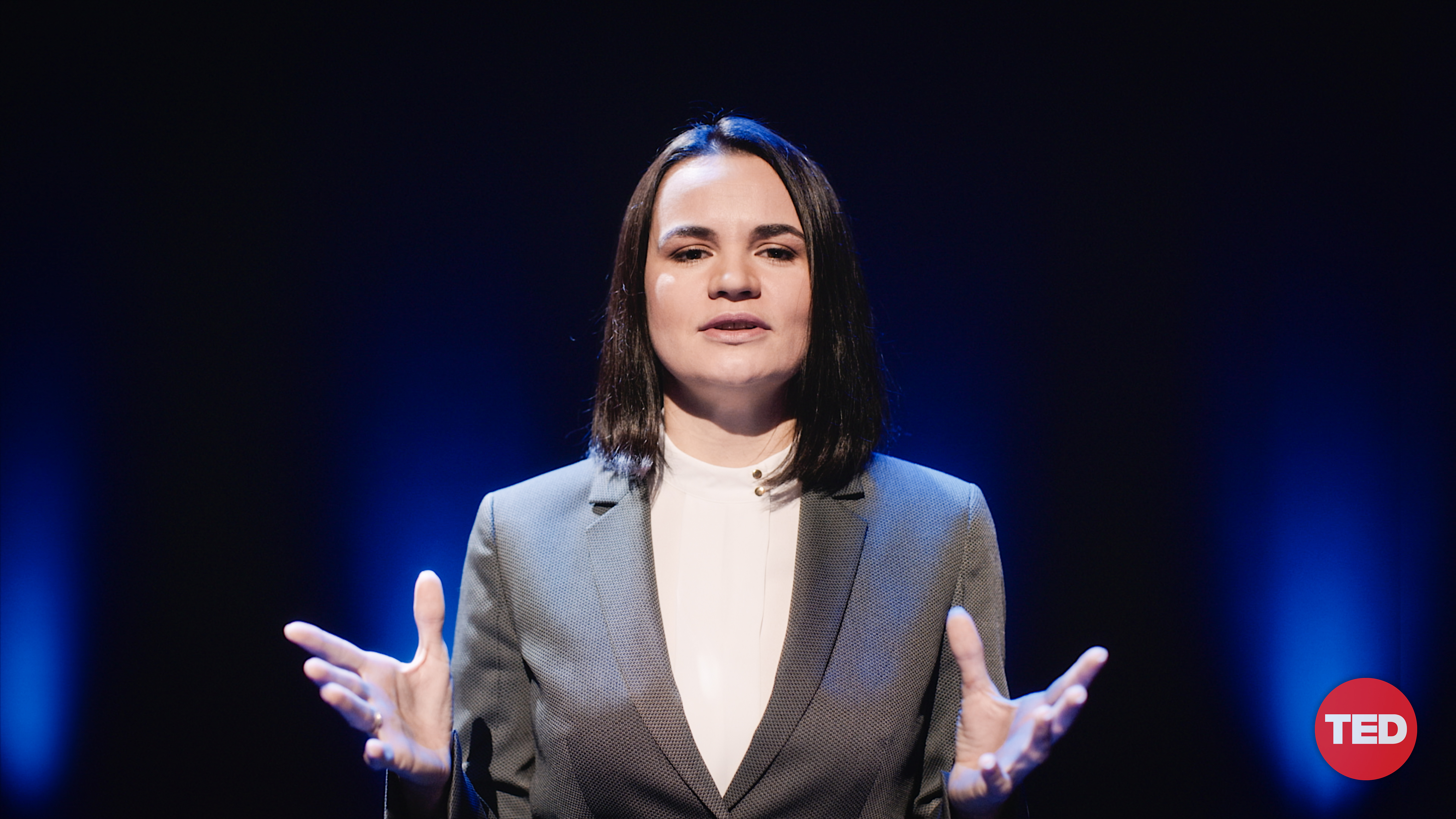
“Our courage is born from unity; our solidarity is our strength,” says Sviatlana Tsikhanouskaya, leader of the national democratic movement in Belarus. She speaks at TEDWomen 2020 on November 12, 2020. (Photo courtesy of TED)
Sviatlana Tsikhanouskaya, politician
Big idea: In the face of authoritarianism, the path to fearlessness lies in unity and solidarity.
How? The people of Belarus have been under authoritarian rule since 1994, subject to police violence and everyday assaults on their freedoms. But this year, something changed. Tens of thousands have taken to the streets to participate in anti-government demonstrations, supporting Sviatlana Tsikhanouskaya’s campaign in opposition to the country’s authoritarian leader, Aleksandr G. Lukashenko. Tsikhanouskaya stepped in for her husband, who was jailed, to run against Lukashenko in the nation’s recent presidential election — an election she is widely viewed to have won, despite falsified results released by the regime. Now, she tells the story of how a small collection of women-led protests in the capital of Minsk sparked massive, peaceful demonstrations across the country — the likes of which Belarus has never seen — that continue amid calls for a new free and fair election. Even after being forced into exile with her children, Tsikhanouskaya remains determined. “Our courage is born from unity,” she says. “Our solidarity is our strength.”
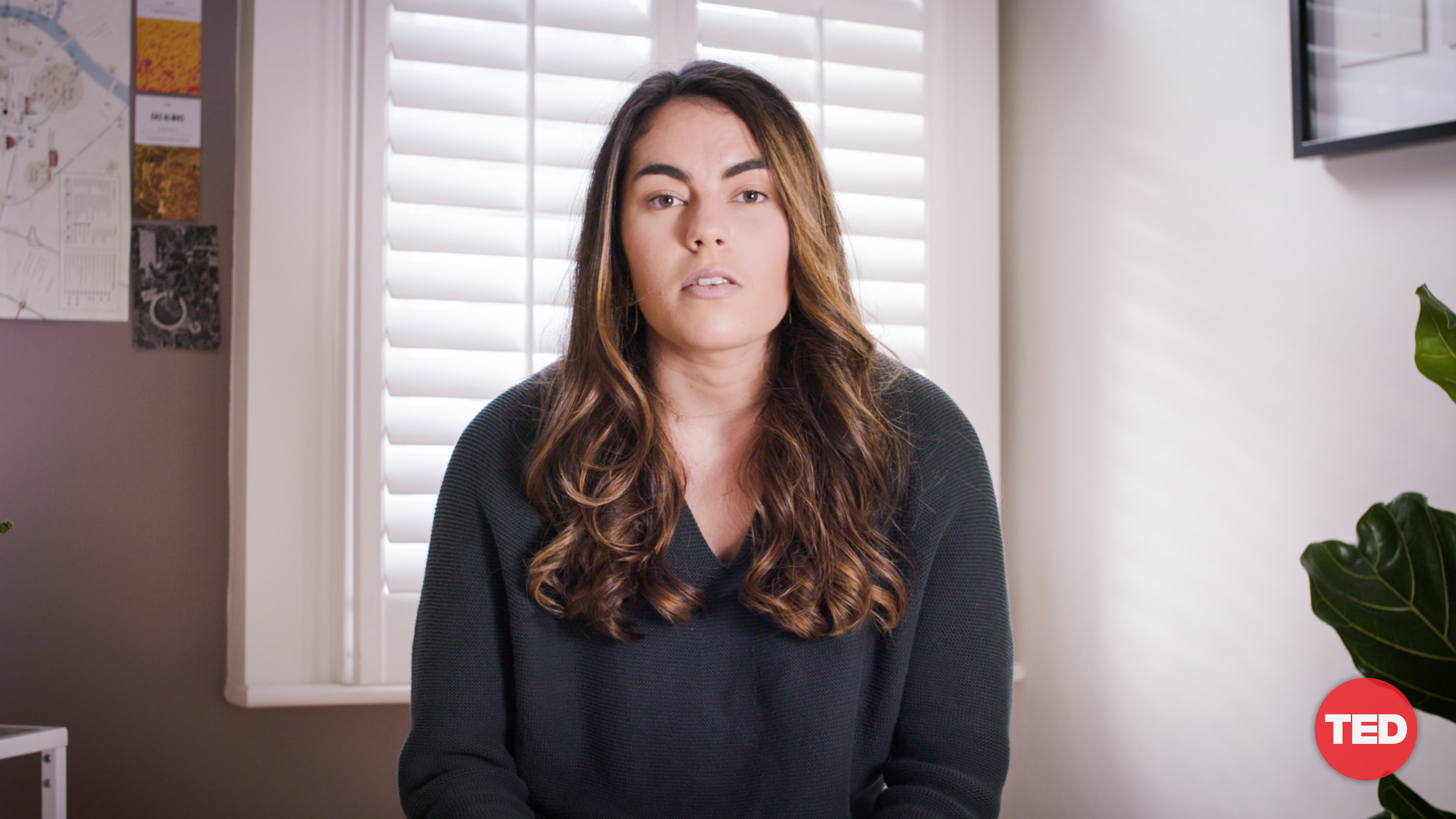
In April 2020, Sophie Rose volunteered to be infected with COVID-19 as part of a human challenge trial. She makes the case for these trials at TEDWomen 2020 on November 12, 2020. (Photo courtesy of TED)
Sophie Rose, infectious disease researcher
Big idea: To quickly and equitably vaccinate the world’s eight billion people against COVID-19, we will need several approved vaccines. Human challenge trials may help speed up the development and deployment of effective vaccines.
How? In April 2020, Sophie Rose volunteered to be infected with COVID-19. As a young, healthy adult, she’s participating in a “human challenge trial” — a type of trial in which participants are intentionally exposed to infection — that may help researchers develop, manufacture and implement vaccines in record time, saving the lives of thousands of people. She explains her decision and the difference between challenge trials and the phase III clinical trials typically carried out for drugs and vaccines. Unlike phase III trials, where participants receive a vaccine and are subsequently monitored for possible infection throughout the course of their normal lives, challenge trial participants are purposely exposed to the virus after vaccination. Deliberate exposure allows researchers to know more quickly if the vaccine works (usually within a matter of months, instead of years) and requires fewer participants (around 50 to 100 instead of thousands). Because exposure is certain, challenge trial volunteers must be young, typically between ages 20 and 29, and have no preexisting conditions that could put them at an elevated risk. Since choosing to participate, Rose cofounded 1Day Sooner, a nonprofit that advocates for challenge trial participants and has helped more than 39,000 people around the world volunteer for these trials.
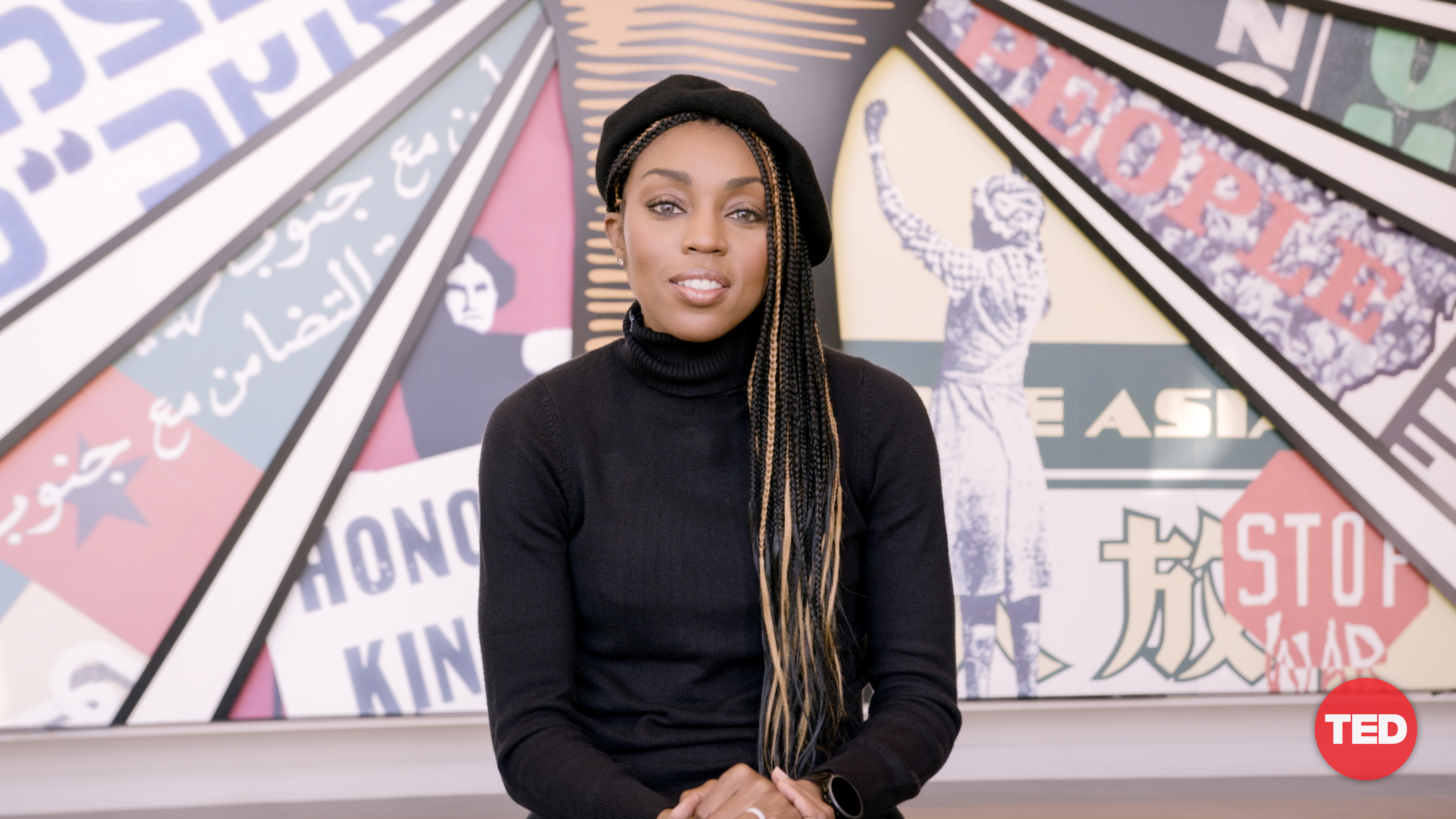
“It’s not just protesting and raising your voice, but also doing something to show your intentions,” says WNBA champion Renee Montgomery. She speaks at TEDWomen 2020 on November 12, 2020. (Photo courtesy of TED)
Renee Montgomery, WNBA champion, activist
Big idea: For people’s voices to be heard in the face of injustice, they need to be “felt.” We can do this by opting out of our comfort zones and taking positive social action.
How? Renee Montgomery hadn’t planned to quit her dream job in the middle of a pandemic, but it was a leap of faith she made in order to do her part in fighting Americ’s racial injustice. By “opting out” of her career as a WNBA player, she made space to focus on others’ voices and amplify them with her platform. Montgomery explains that, to truly have these experiences heard, they need to be felt: “Making it felt for me is an action,” she says. “It’s not just protesting and raising your voice, but also doing something to show your intentions.” Her intentions? To level the playing field so everyone has the same opportunities, regardless of race, and to turn this moment into positive, lasting momentum.
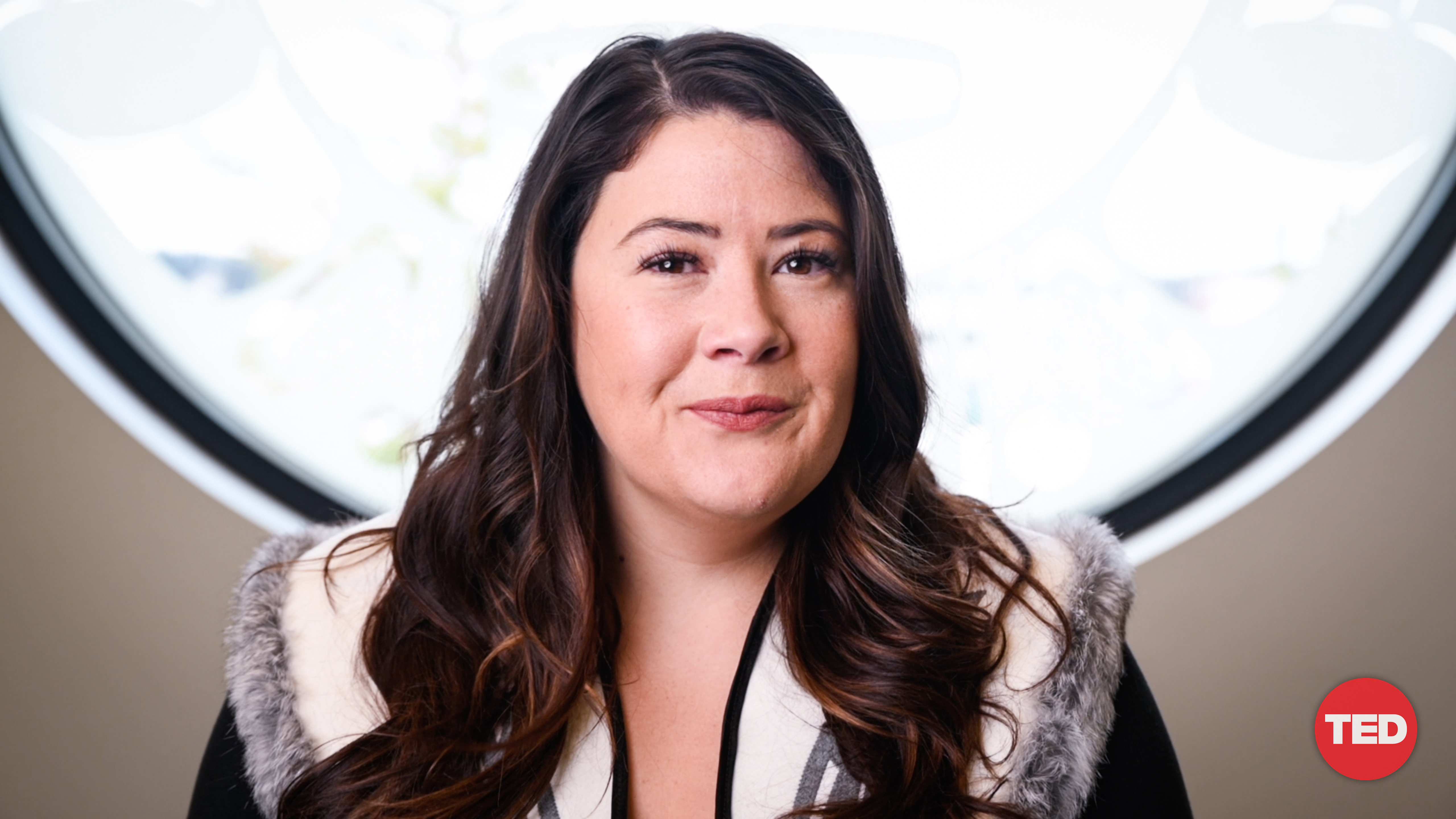
Yukon Regional Chief Kluane Adamek shares the legacy of matriarchs in the Yukon First Nations at TEDWomen 2020 on November 12, 2020. (Photo courtesy of TED)
Kluane Adamek, Yukon Regional Chief
Big idea: Leadership and matriarchal wisdom of the Yukon First Nations people.
Tell us more: In the Yukon First Nations, women lead — and have done so for generations. Their matriarchs have forged trade agreements, created marriage alliances and ensured business happens across their land for generations. Their matrilineal society is one that deeply values, honors and respects the roles of women. Much of the world doesn’t reflect this way of living, but Yukon Regional Chief Kluane Adamek urges others to follow in the footsteps of her people — by putting more women at the table and learning from the power of reciprocity. There’s so much women can share with the world, she says, encouraging all women to seek spaces to share their perspective and create impact.
María Teresa Kumar, civic leader
Big idea: The engaged and growing Latinx vote turned out in record numbers during the US 2020 presidential election and has the potential to shape American politics for decades to come.
How? A historic number of Latinx voters cast a ballot in the US 2020 presidential election. As the nation’s most rapidly growing demographic, Latinx youth are voting for a brighter future. María Teresa Kumar, CEO of Voto Latino, reflects on the issues closest to young Latinx voters and their families, which include health care, climate equity and racial justice. With a look back to FDR’s New Deal, which catalyzed growth, nation-building and paved the way for JFK’s century-defining Moonshot mission, Kumar peeks into the future of the United States and sees the potential for the newest generation of voters to shape the years ahead.
from TED Blog https://blog.ted.com/bring-it-on-notes-from-session-1-of-tedwomen-2020/
via Sol Danmeri
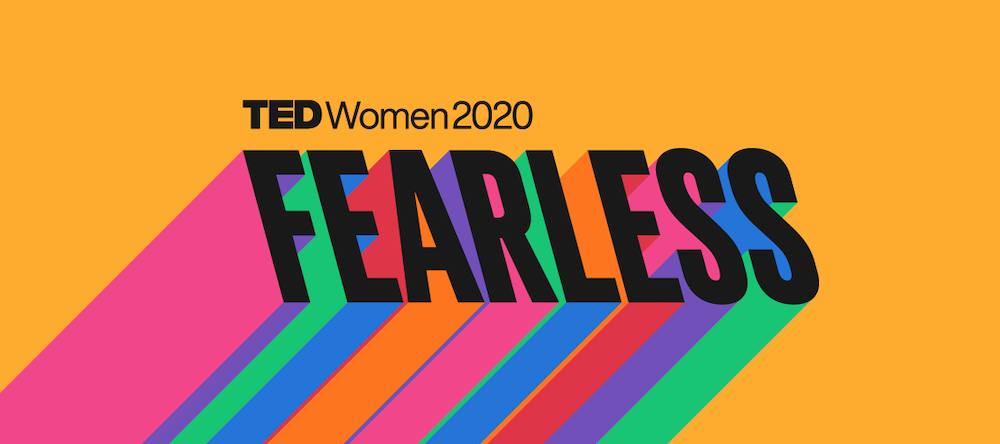
No comments:
Post a Comment